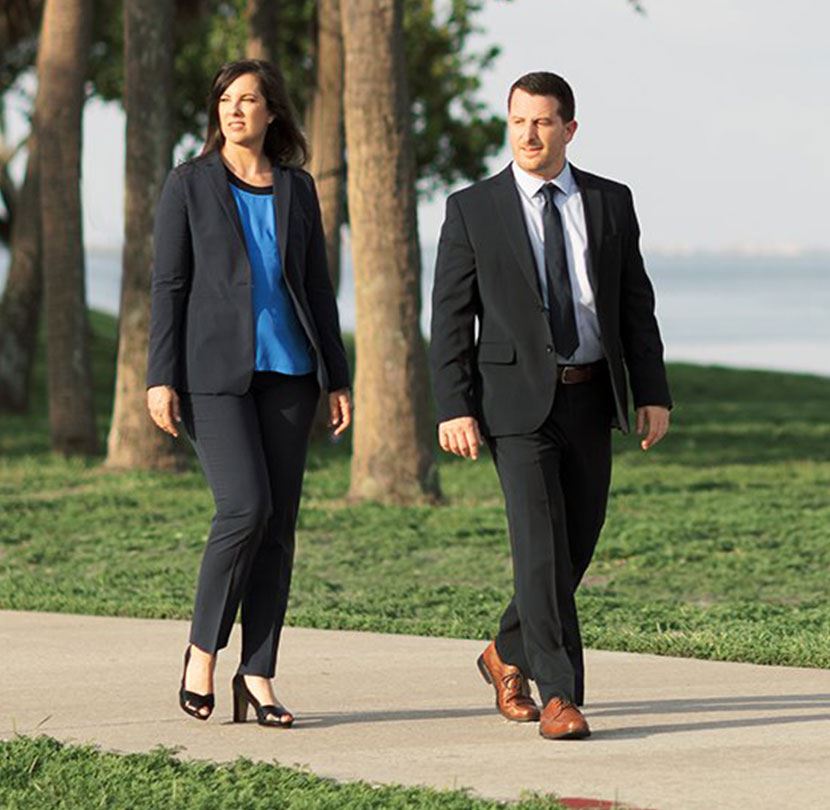If you were arrested for DUI and refused to submit to a breath, blood, or urine test, you may face serious legal consequences. Florida has implied consent laws, meaning drivers who refuse chemical testing can face license suspension and other penalties. However, a DUI refusal is not an automatic conviction—you still have options to fight the charges.
At Morris Law Firm, P.A., we defend clients facing DUI refusal charges in St. Petersburg, Clearwater, Tampa, Sarasota, Bradenton, and throughout the Tampa Bay area. Let us help you build a strong defense and protect your future.
Arrested for DUI refusal? Protect your rights today. Contact us now at (727) 388-4736 for a free consultation!
Understanding DUI Refusal in Florida
Under Florida’s implied consent law (F.S. 316.1932), when you get a driver's license, you automatically agree to submit to a chemical test if lawfully arrested for DUI. Refusing the test can lead to harsh penalties, even if you are not convicted of DUI.
Consequences of Refusing a DUI Test
Refusing a breath, blood, or urine test can result in:
- First refusal – One-year driver’s license suspension
- Second or subsequent refusal – 18-month license suspension and a misdemeanor charge
- Use as evidence – Prosecutors may argue that refusal indicates consciousness of guilt
Fighting these penalties requires strong legal representation. Our DUI defense attorneys will examine the details of your case to challenge the charges against you.
Defenses Against DUI Refusal Charges
Even if you refused a breath, blood, or urine test, you still have defense options, such as:
- Lack of probable cause – If the officer had no valid reason to stop you, the case could be dismissed.
- Improper police procedures – If law enforcement failed to properly inform you of the consequences of refusal, the charges may not hold.
- Medical conditions or language barriers – Some individuals are unable to provide a breath sample due to health issues or misunderstanding.
- Equipment malfunctions – If the breathalyzer was defective or not properly calibrated, the refusal may be challenged.
Our team at Morris Law Firm, P.A. will investigate every aspect of your case to determine the best legal strategy.
Aggravating Factors in DUI Refusal Cases
Certain factors can make a DUI refusal case more severe, leading to increased penalties, including:
- Prior DUI or refusal convictions – Repeat offenses result in harsher consequences.
- Accidents or injuries – If someone was hurt in an accident related to your DUI stop, felony charges may apply.
- Excessive BAC levels – If prior test results show a high BAC, prosecutors may argue that refusal was intentional.
- Minors in the vehicle – DUI with a child passenger can lead to enhanced penalties.
Understanding these factors is crucial in building a strong defense to minimize the impact on your record and your life.
What to Do After a DUI Refusal Arrest
If you have been arrested for DUI refusal, taking the right steps can protect your case:
- Stay calm and avoid making statements – Anything you say can be used against you.
- Do not resist the arrest – This could lead to additional charges.
- Write down all details – Note what happened during the stop, including the officer’s actions and any possible errors.
- Request a hearing – You have 10 days to request a DMV hearing to contest your license suspension.
- Contact a DUI attorney immediately – The sooner you get legal representation, the better your chances of reducing or dismissing charges.
Alternative Sentencing Options
In some cases, DUI refusal charges can be resolved through alternative sentencing, including:
- DUI diversion programs – Some first-time offenders may qualify for reduced penalties by completing a program.
- Community service – Courts may allow community service instead of jail time.
- Substance abuse education – Attending alcohol or drug treatment programs may help mitigate penalties.
- Probation – Instead of serving jail time, offenders may be placed on supervised probation.
We will explore all possible alternatives to help minimize the consequences of your DUI refusal case.
Frequently Asked Questions (FAQ)
Can I still be convicted of DUI if I refused the test?
- Yes, prosecutors can use other evidence, such as field sobriety tests, officer observations, and witness statements, to pursue a conviction.
What if I didn’t understand that refusing the test would suspend my license?
- If law enforcement failed to properly inform you of the consequences, your attorney may challenge the validity of the refusal.
How long do I have to fight my license suspension?
- You have 10 days from the date of your arrest to request a formal hearing with the Florida Department of Highway Safety and Motor Vehicles (DHSMV).
Does refusing a test automatically mean I’m guilty?
- No, refusal alone does not prove guilt. A strong legal defense can challenge the prosecution’s case.
Can a DUI refusal charge be dismissed?
- Yes, if there were procedural errors, lack of probable cause, or violations of your rights, your attorney can fight for a dismissal.
Will a DUI refusal affect my insurance?
- Yes, a DUI refusal can lead to higher insurance premiums or even policy cancellation.
Can I get a hardship license after a DUI refusal?
- Possibly. Some drivers may qualify for a restricted license to drive to work or school after completing a DUI education course.
Facing license suspension? Don’t wait—contact us now at (727) 388-4736 to discuss your defense options!










